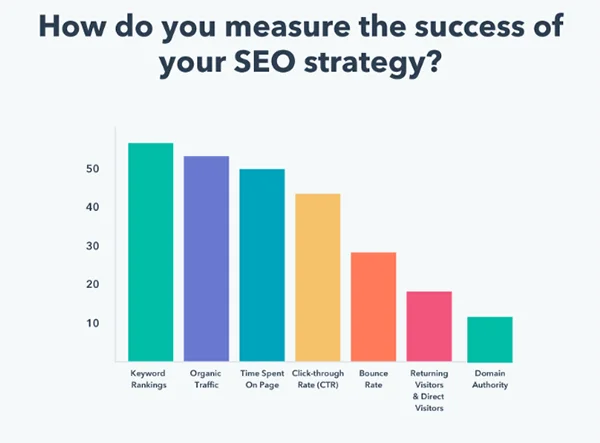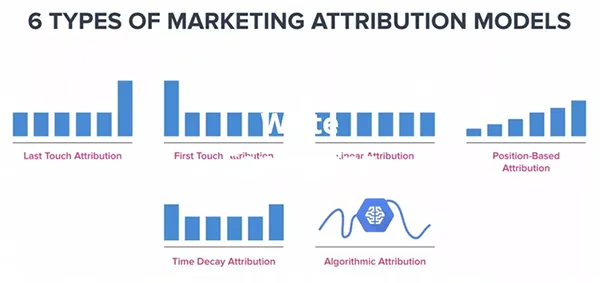If you are someone from the marketing sector, you would know that SEO is the most powerful and viral marketing tool in many sectors.
It’s a well-known fact that SEO practices are necessary for building a customer base, no matter the market type. The accuracy and stability of these methods positively affect the finances and, in simple terms, increase profits. However, these services tend to be pricey. Still, there are content writing agencies in India like Wordscloud that can provide related services under your budget.
If you are a business owner, you would expect these strategies to lead to results, but the question is, what kind of SEO ROI are you expecting?
That’s why we are focusing this post on answering all your doubts and questions, be it details about SEO ROI, how to measure ROI, and why you need to measure it for your business.
What is SEO ROI?
In simple words, ROI is a return on investment that comes from your efforts in search engine optimization methods. If you want to appreciate your SEO efforts, you need to measure these returns to know how valuable the SEO can be.
“Return on Investment should be holistic”, says Hendrith Vanlon Smith Jr.
If you still are not convinced, you should believe in the studies that show how an investment in SEO promises huge returns.
How much ROI can you expect? To answer this, your business can expect an average ROI of 5:1 or more. This amount depends on how you introduce your strategy in the company.

Statistics:
The latest statistics on the factors that measure the success of your SEO strategy uncover that keyword rankings can determine the success of the SEO campaign.
ROI calculation can be based on search engine rankings, organic website traffic, and goal completions. Once you are done with your evaluation, it’s time to use the formula.
The SEO ROI Formula
If you think these return rate calculations end after checking search engine rankings, organic website traffic, or goal completions, then you are wrong. You need to calculate it using the formula noted below:

Let’s go into more detail, as we also know it’s confusing:
- SEO Revenue: It is the total profit that your client earns from the efforts you make on SEO like helping them in bringing organic search traffic, conversions, or sales.
- SEO Costs: This is quite different from the profits. SEO costs mean the amount your client invests in the SEO methods to get results. It can be the fees for content creation, services, software tools, etc.
This formula will give you detailed information on the going and coming cash flow of the marketing methods.
How to Calculate the ROI of SEO?
Now, we will move on to the steps to calculate the return rates so that you can follow them to gain information about your marketing efforts.
Calculate Investment:
To get started, you need to find out how much money you’re putting into the marketing strategies that could be of:
- In-house employees
- SEO agencies and freelancers
- SEO tools (if any)
- Content distribution and link-building payments
Next, you need to find how much you earned from your investments.
Track SEO Revenue:
It should be the main goal of your business, to track the profits gained by the changes you made in the marketing methods. As we talked about it before, you can find it with the help of organic search traffic.
Do You Know?:
A well-executed SEO campaign produces an average ROI of 275%.
Also, if you want to know how it affected you financially, you can use tools like “Google Analytics”.
Comprehend Objectives and KPIs:
You also need to set goals and KPIs (Key Performance Indicators) to figure out the expenses for SEO processes. It helps to measure the impact of notable profits, lead creation, or improvement in brand visibility.
Track Keyword Performance:
If you have been in this industry for a long time, you would know that ROI calculation is a real struggle that even beats the professional.
You must be aware of the fact that most of the time the calculation starts with keyword research. That’s why it’s necessary to check the performance of targeted keywords on SERPs.
The traffic on sites and keyword ranks are related to each other, meaning it affects the ROI positively.
Keep an Eye on Conversion Rates:
For, the next step, you should set up the tools to track the conversion rates in Google Analytics (GA4). This will help you to learn all the rates on the site that get profit.
However, you should remember that the increased conversion rates can affect the results of ROI.
SEO ROI Statistics:
Keep your eyes glued to the forecasting, as it will show you the possibilities for your future efforts. It shows you some market data that allows you to predict growth and profits in the years ahead as it helps to manage assets, focus on SEO efforts, and make changes accordingly.
Interesting Fact:
The search engine optimization in 2022 was worth $80 billion.
Despite all of that, a few of the SEO ROI stats are:
- Website’s past SEO performance
- Traffic potential
- Average conversion rate
After you have gathered the data, predict future trends and think of the best methods you can use to get even better results.
Ask Related Questions to Yourself:
SEO is not all about cost, but a planned investment that can improve your online presence and take your company on the road to success.
But, have you ever asked yourself if your efforts explain the cost? If not, then ask first. Doing this will help you to reach a large amount of interested audience.
Complexities in Calculating SEO ROI
Here are some common difficulties you can face:
- SEO is time-consuming: It costs too much of your time, and there would be no time until four to six months after you introduce the new strategies.
- Measuring retention impact can be challenging: It increases the lifetime value, builds lasting relationships, lowers churn rates, etc. but these perks make it impossible to track when you are calculating ROI.
- Issues with marketing attribution: This means giving credit to different digital marketing channels or touchpoints.

It often impacts the customer’s journey.
Summing Up
Everyone knows that SEO is a tool that helps your company to become successful and thrive in the market. But, it is not a one-size-fits-all solution.
If you want to see results, you need to constantly monitor, and measure the improvements that play a huge role. A well-planned search engine optimization strategy can bring you impressive results.
So, what we got to know from this is – content is king, but ROI is queen!
Also Read: Mastering Keyword Analysis | A Comprehensive Guide for Effective SEO







